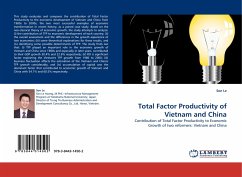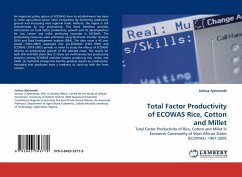Industrialization has been embraced by many developing countries as a means of achieving structural transformation of the economies. In Kenya, the goal to industrialize has long been held as a strategy for economic development. It has received emphasis as the main strategy for addressing the principal challenges of development in Kenya; employment creation and poverty eradication. While Kenya inherited a relatively well established manufacturing sector at independence in 1963, the sector s overall performance has been rather dismal. The share of the manufacturing sector in GDP has recorded little changed over the last three decades. At the same time, the sector which was expected to play a critical role in Vision 2030's ambition of the country s development and growth process has not been dynamic enough to effectively play this role. Consequently, this book entails a study to examine Kenya s manufacturing sector; it empirically analyzes the total factor productivity change using the latest firm level data for the period 2000-2003. The study also decomposes it into efficiency and technical changes while using data envelopment analysis (DEA) to derive Malmquist productivity indices.
Bitte wählen Sie Ihr Anliegen aus.
Rechnungen
Retourenschein anfordern
Bestellstatus
Storno








